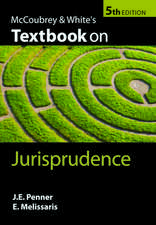The Concept of Social Change (Routledge Revivals): A Critique of the Functionalist Theory of Social Change: Routledge Revivals
Autor Anthony D. Smithen Limba Engleză Paperback – 15 oct 2010
Functionalism, he argues, is unable to cope with the mechanisms of historical transitions or account for novelty and emergence; it confuses classification of variations with explanation of processes; and its endogenous view of change prevents it from coming to grips with the real events and transformations of the historical record. In his assessment of functionalism, Dr Smith traces its explanatory failures in its accounts of the developments of civilisation, modernisation and revolution. He concludes that the study of 'evolution' is largely irrelevant to the investigation of social change. He proposes instead an exogenous paradigm of social change, which places the study of contingent historical events at its centre.
Din seria Routledge Revivals
- 9%
 Preț: 801.71 lei
Preț: 801.71 lei - 8%
 Preț: 432.64 lei
Preț: 432.64 lei -
 Preț: 153.83 lei
Preț: 153.83 lei -
 Preț: 245.88 lei
Preț: 245.88 lei -
 Preț: 309.79 lei
Preț: 309.79 lei -
 Preț: 258.73 lei
Preț: 258.73 lei - 9%
 Preț: 764.35 lei
Preț: 764.35 lei - 9%
 Preț: 903.42 lei
Preț: 903.42 lei -
 Preț: 311.18 lei
Preț: 311.18 lei -
 Preț: 357.45 lei
Preț: 357.45 lei - 9%
 Preț: 626.93 lei
Preț: 626.93 lei -
 Preț: 317.54 lei
Preț: 317.54 lei - 9%
 Preț: 764.30 lei
Preț: 764.30 lei -
 Preț: 257.01 lei
Preț: 257.01 lei -
 Preț: 238.40 lei
Preț: 238.40 lei -
 Preț: 259.48 lei
Preț: 259.48 lei - 9%
 Preț: 938.10 lei
Preț: 938.10 lei -
 Preț: 341.33 lei
Preț: 341.33 lei -
 Preț: 264.10 lei
Preț: 264.10 lei -
 Preț: 294.98 lei
Preț: 294.98 lei -
 Preț: 308.89 lei
Preț: 308.89 lei -
 Preț: 207.40 lei
Preț: 207.40 lei -
 Preț: 347.50 lei
Preț: 347.50 lei -
 Preț: 302.59 lei
Preț: 302.59 lei -
 Preț: 389.40 lei
Preț: 389.40 lei -
 Preț: 257.01 lei
Preț: 257.01 lei -
 Preț: 358.30 lei
Preț: 358.30 lei - 9%
 Preț: 640.91 lei
Preț: 640.91 lei - 9%
 Preț: 619.49 lei
Preț: 619.49 lei -
 Preț: 228.88 lei
Preț: 228.88 lei -
 Preț: 265.16 lei
Preț: 265.16 lei -
 Preț: 257.90 lei
Preț: 257.90 lei -
 Preț: 266.06 lei
Preț: 266.06 lei -
 Preț: 258.73 lei
Preț: 258.73 lei -
 Preț: 384.01 lei
Preț: 384.01 lei -
 Preț: 246.38 lei
Preț: 246.38 lei - 9%
 Preț: 832.08 lei
Preț: 832.08 lei -
 Preț: 266.20 lei
Preț: 266.20 lei -
 Preț: 294.53 lei
Preț: 294.53 lei - 18%
 Preț: 695.86 lei
Preț: 695.86 lei - 9%
 Preț: 934.96 lei
Preț: 934.96 lei - 5%
 Preț: 243.38 lei
Preț: 243.38 lei -
 Preț: 274.69 lei
Preț: 274.69 lei -
 Preț: 208.20 lei
Preț: 208.20 lei - 9%
 Preț: 659.19 lei
Preț: 659.19 lei -
 Preț: 259.69 lei
Preț: 259.69 lei - 9%
 Preț: 1038.47 lei
Preț: 1038.47 lei -
 Preț: 389.46 lei
Preț: 389.46 lei -
 Preț: 302.14 lei
Preț: 302.14 lei -
 Preț: 302.27 lei
Preț: 302.27 lei
Preț: 295.91 lei
Preț vechi: 354.82 lei
-17% Nou
Puncte Express: 444
Preț estimativ în valută:
56.64€ • 61.54$ • 47.61£
56.64€ • 61.54$ • 47.61£
Carte tipărită la comandă
Livrare economică 21 aprilie-05 mai
Preluare comenzi: 021 569.72.76
Specificații
ISBN-13: 9780415579315
ISBN-10: 0415579317
Pagini: 210
Dimensiuni: 138 x 216 mm
Greutate: 0.28 kg
Ediția:1
Editura: Taylor & Francis
Colecția Routledge
Seria Routledge Revivals
Locul publicării:Oxford, United Kingdom
ISBN-10: 0415579317
Pagini: 210
Dimensiuni: 138 x 216 mm
Greutate: 0.28 kg
Ediția:1
Editura: Taylor & Francis
Colecția Routledge
Seria Routledge Revivals
Locul publicării:Oxford, United Kingdom
Cuprins
1. Functionalism and Social Change 2. The 'neo-revolutionary' revival 3. The Stages of Evolution 4. Modernism and Modernisation 5. Revolution 6. Equilibrium and Social Change 7. Evolution and History
Descriere
Anthony Smith's important work on the concept of social change, first published in 1973, puts forward the paradigm of historical change as an alternative to the functionalist theory of evolutionary change. He shows that, in attempting to provide a theory of social change, functionalism reveals itself as a species of 'frozen' evolutionism.
Functionalism, he argues, is unable to cope with the mechanisms of historical transitions or account for novelty and emergence; it confuses classification of variations with explanation of processes; and its endogenous view of change prevents it from coming to grips with the real events and transformations of the historical record. In his assessment of functionalism, Dr Smith traces its explanatory failures in its accounts of the developments of civilisation, modernisation and revolution. He concludes that the study of 'evolution' is largely irrelevant to the investigation of social change. He proposes instead an exogenous paradigm of social change, which places the study of contingent historical events at its centre.
Functionalism, he argues, is unable to cope with the mechanisms of historical transitions or account for novelty and emergence; it confuses classification of variations with explanation of processes; and its endogenous view of change prevents it from coming to grips with the real events and transformations of the historical record. In his assessment of functionalism, Dr Smith traces its explanatory failures in its accounts of the developments of civilisation, modernisation and revolution. He concludes that the study of 'evolution' is largely irrelevant to the investigation of social change. He proposes instead an exogenous paradigm of social change, which places the study of contingent historical events at its centre.











